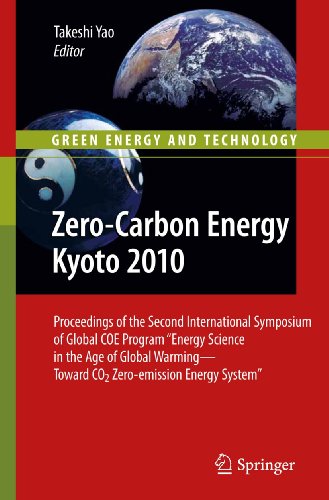

Most ebook files are in PDF format, so you can easily read them using various software such as Foxit Reader or directly on the Google Chrome browser.
Some ebook files are released by publishers in other formats such as .awz, .mobi, .epub, .fb2, etc. You may need to install specific software to read these formats on mobile/PC, such as Calibre.
Please read the tutorial at this link: https://ebookbell.com/faq
We offer FREE conversion to the popular formats you request; however, this may take some time. Therefore, right after payment, please email us, and we will try to provide the service as quickly as possible.
For some exceptional file formats or broken links (if any), please refrain from opening any disputes. Instead, email us first, and we will try to assist within a maximum of 6 hours.
EbookBell Team

0.0
0 reviewsSince 2008, the Global Center of Excellence (COE) at Kyoto University, Japan, has been engaged in a program called “Energy Science in the Age of Global Warming—Toward a CO2 Zero-Emission Energy System.” Its aim is to establish an international education and research platform to foster educators, researchers, and policy makers who can develop technologies and propose policies for establishing a CO2 zero-emission society no longer dependent on fossil fuels. It is well known that the energy problem cannot simply be labeled a technological one, as it is also deeply involved with social and economic issues. The establishment of a “low-carbon energy science” as an interdisciplinary field integrating social sciences with natural sciences is necessary. The Global COE is setting out a zero-emission technology roadmap and is promoting socioeconomic studies of energy, studies of new technologies for renewable energies, and research for advanced nuclear energy. It has also established the Global COE Unit for Energy Science Education to support young researchers as they apply their skills and knowledge and a broad international perspective to respond to issues of energy and the environment in our societies. Comprising the proceedings of the Second International Symposium of the Global COE Program, this book follows on the earlier volume Zero-Carbon Energy Kyoto 2009, published in March 2010.